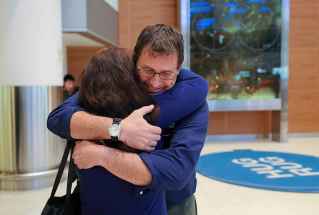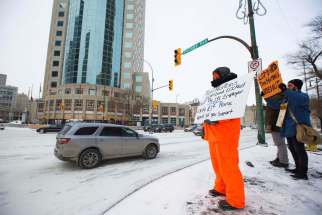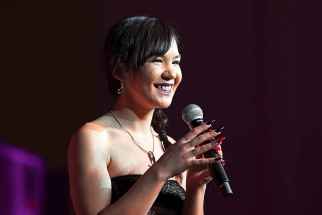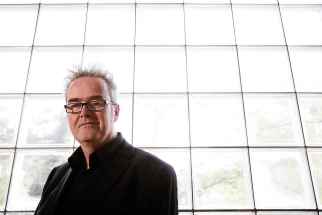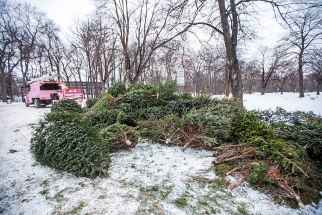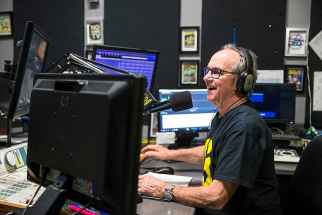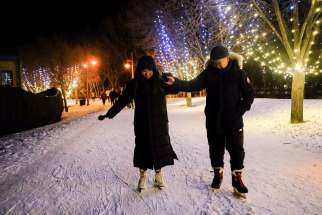For Kelly’s sake, we need to eliminate lateral violence
Read this article for free:
or
Already have an account? Log in here »
To continue reading, please subscribe:
Monthly Digital Subscription
$0 for the first 4 weeks*
- Enjoy unlimited reading on winnipegfreepress.com
- Read the E-Edition, our digital replica newspaper
- Access News Break, our award-winning app
- Play interactive puzzles
*No charge for 4 weeks then price increases to the regular rate of $19.00 plus GST every four weeks. Offer available to new and qualified returning subscribers only. Cancel any time.
Monthly Digital Subscription
$4.75/week*
- Enjoy unlimited reading on winnipegfreepress.com
- Read the E-Edition, our digital replica newspaper
- Access News Break, our award-winning app
- Play interactive puzzles
*Billed as $19 plus GST every four weeks. Cancel any time.
To continue reading, please subscribe:
Add Free Press access to your Brandon Sun subscription for only an additional
$1 for the first 4 weeks*
*Your next subscription payment will increase by $1.00 and you will be charged $16.99 plus GST for four weeks. After four weeks, your payment will increase to $23.99 plus GST every four weeks.
Read unlimited articles for free today:
or
Already have an account? Log in here »
Hey there, time traveller!
This article was published 09/01/2020 (2162 days ago), so information in it may no longer be current.
Nine days before her suicide last Christmas Eve, Inuit singer Kelly Fraser posted on social media: “I face a ton of lateral violence and criticism and hate. If you wanna pile it on please first unfriend me. I need a strong support system, I am not looking to lose any more friends, believe me. I’m just trying to make our language and culture stronger through music thats all. Just because I am well known doesn’t mean I deserve it.”
This was not the first time Fraser – who became internationally known for her innovative incorporation of Inuit culture and pop music – would speak about the bullying and criticism she would experience from other Indigenous people.
It happened continually and consistently. In a written statement from Fraser’s mother, Theresa Angoo, and her six siblings about her death, they wrote: “Kelly suffered from PTSD (post-traumatic stress disorder) for many years as a result of childhood traumas, racism and persistent cyberbullying.”
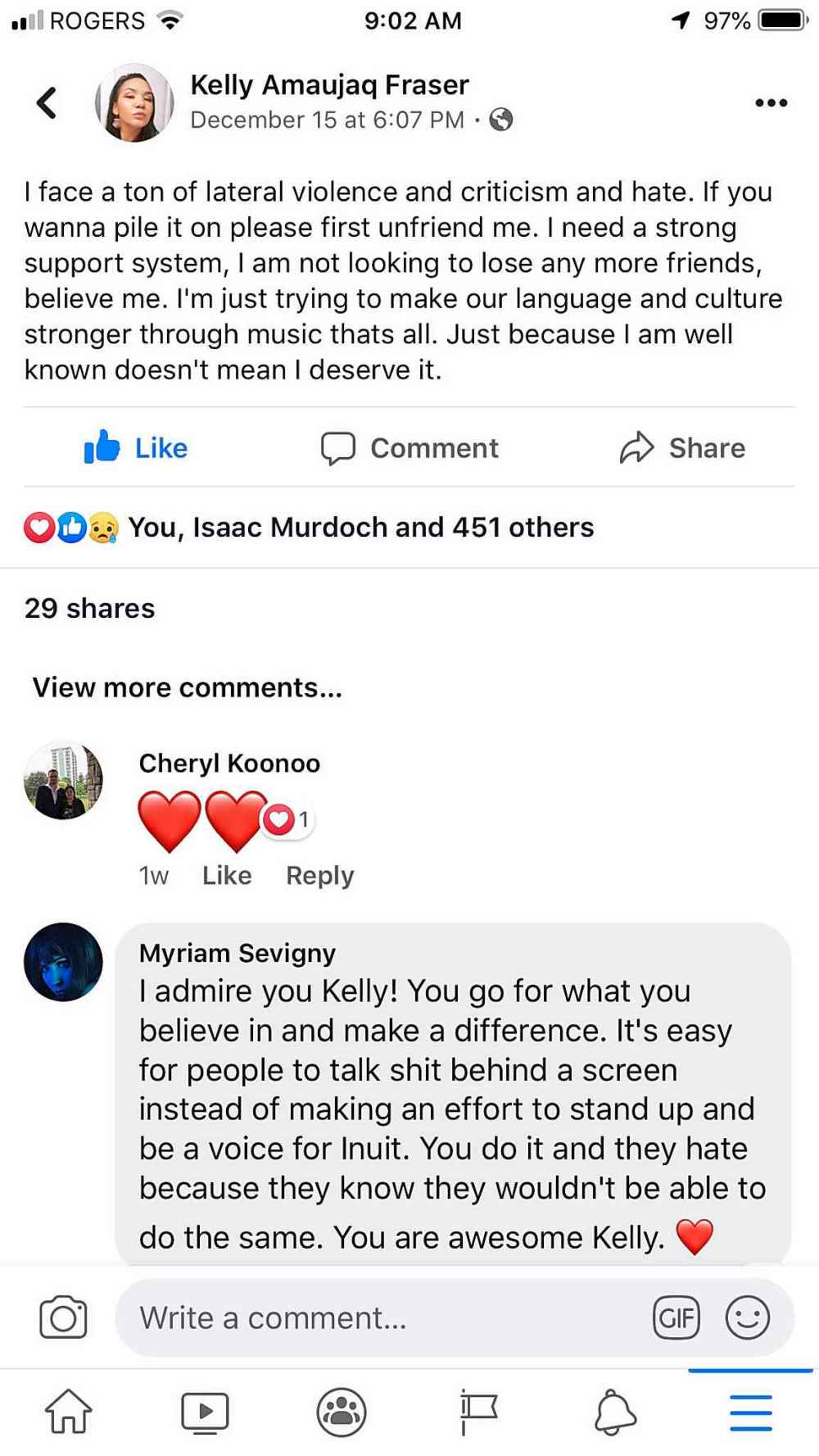
Fraser was not afraid to share this publicly. “She was actively seeking help and spoke openly about her personal challenges online and through her journey,” said her family’s statement.
Her bravery — and subsequent suicide partly as a result of the bullying and harassment she received – has opened up a big discussion in the Indigenous community.
Look up “lateral violence” on any media platform if you want to know what I mean.
Now, being an Indigenous professional in Canada is not easy.
First of all, Canada has worked very hard to remove, erase, and eradicate us. The fact that many of us have emerged from legacies of the Indian Act, residential schools, and never-ending cycles of poverty and violence is remarkable unto itself.
If we make it to university or college or a healthy life as a parent or partner or whatever else, that’s success unto itself.
If we learn our cultures, our languages, and work to support our families and communities, that’s even more success.
Then, there’s the challenge of living in a Canada built off the exploitation of Indigenous nations and resources. The denial of Indigenous languages and cultures. The continual ignorance in workplaces and coffee shops that sound like: “Why don’t you people stop complaining and protesting all the time?” or “Why can’t you just get over it?” or “Why do I have to make treaty acknowledgements… I’m not giving up my house.”
Most of us who enter “mainstream” society are the first of our generation.
I, for instance, am the first teacher in my family. The first professor. The first columnist.
My sister is the first computer programmer. My other sister is the first in tourism. My father was the first lawyer and the first Indigenous judge in Manitoba history. You get it.
The first in the pool, as they say, meets the cold water.
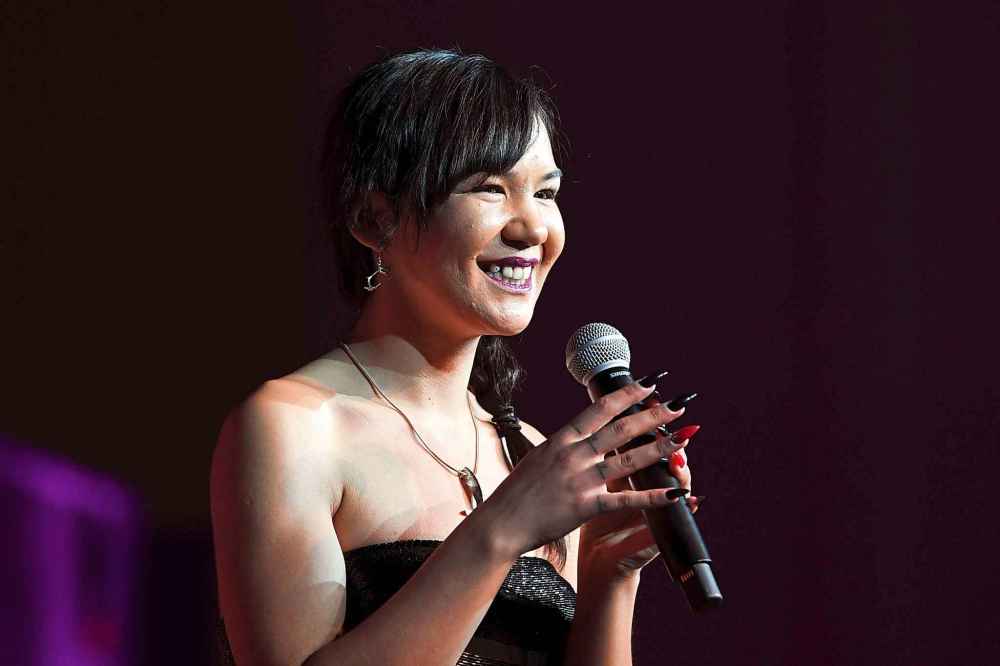
The hardest part of this isn’t the ignorance though. It’s the lack of mentorship.
When I was an Indigenous high school teacher I had no one around who knew what it was like to do three times the job as everyone else. To do the best job I could do, I didn’t just have to teach students but my fellow teachers and administrators too. I had no one who understood the situation I was in.
No one to talk to.
This isn’t a complaint – that’s what being the first means. Your job is to open the door for others.
Being the first also comes with responsibilities, particularly to the Indigenous community. Expectations. Stakes. Accountability.
You’re a representative of that job and field. A role model, whether you want to be or not.
You’re expected to share your success with others. As the Indigenous whatever in your workplace, young Indigenous people look to you as someone who will help them.
Also, your duties to the Indigenous community – whether that be as a brother, a cousin, or a ceremonial person – don’t end because you become a lawyer, doctor, or professor.
For most Indigenous peoples, success comes with a great deal of support, encouragement, and love.
It also comes with pressure, stress, and unfortunately, criticism. Some is warranted. Some is mean-spirited and what is called “lateral violence.”
If there is one thing that 150 years of violence has taught Indigenous peoples is how to be violent with one another. We didn’t just experience violence from residential schools, Indian Agents, and Canada’s policies but many of us brought it into our lives, families, and communities.
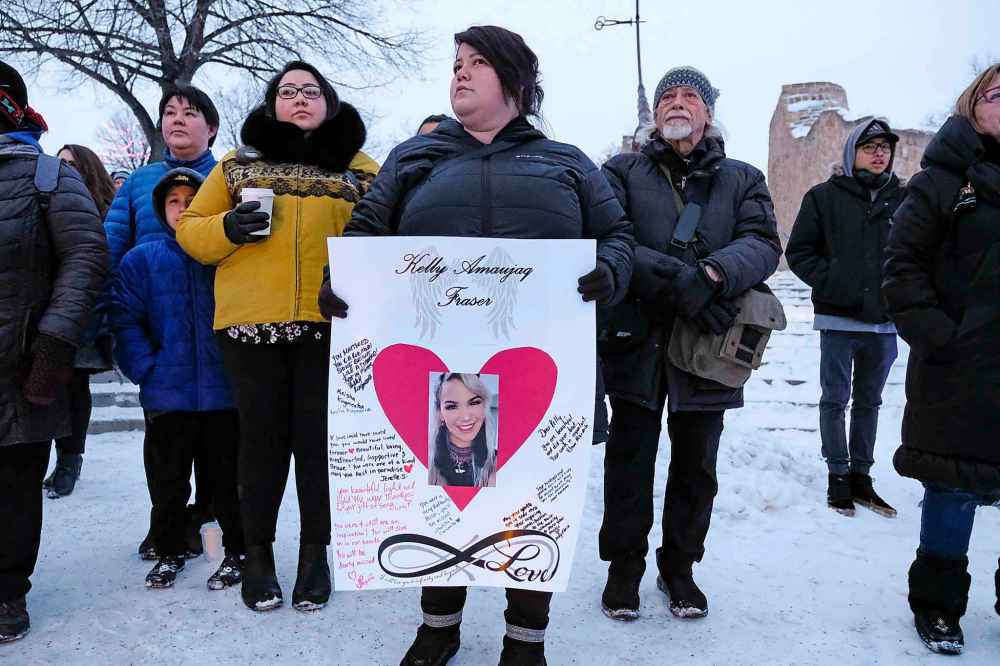
Some of the ugliest legacies from this violent history can be seen when one of us experiences success; whether it be a job, a promotion, or the limelight.
Lateral violence takes on a number of different toxic behaviours like gossiping, harassment, or personal attacks.
Personally, I’ve been called everything from “colonized” to “elitist” to “not traditional enough” to “too much traditional” on tweets, status updates, and even in an online hate group.
Again, this is not a complaint, it’s to give you a sense of what it is like to experience lateral violence.
Stopping it begins when you talk about it. Stand up for yourself. Invite others to help change these behaviours.
Like Kelly did.
Like I’m doing now.
niigaan.sinclair@freepress.mb.ca

Niigaan Sinclair is Anishinaabe and is a columnist at the Winnipeg Free Press.
Our newsroom depends on a growing audience of readers to power our journalism. If you are not a paid reader, please consider becoming a subscriber.
Our newsroom depends on its audience of readers to power our journalism. Thank you for your support.



